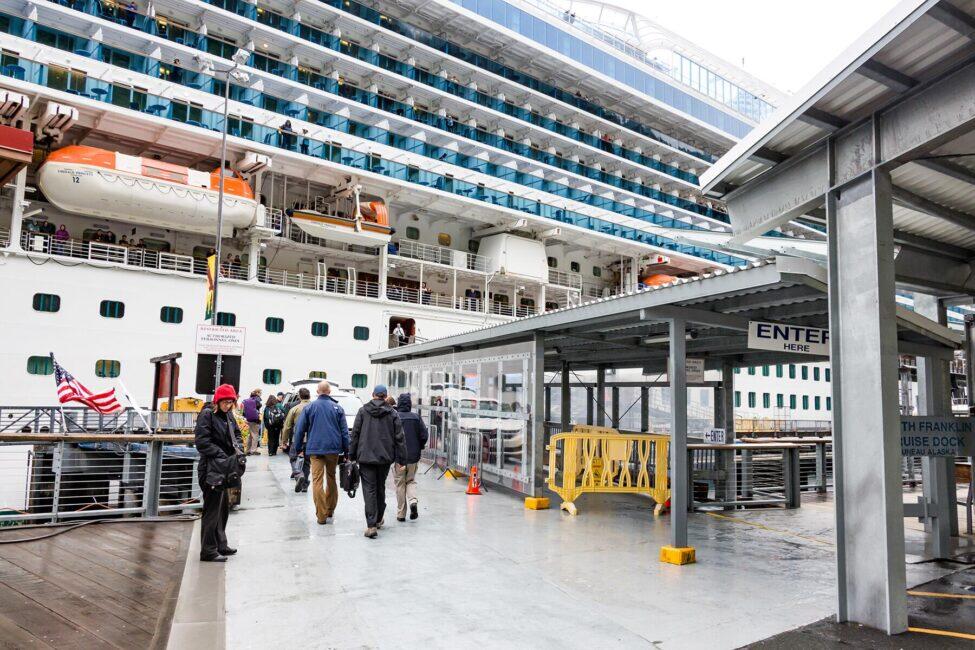After the worst happens, what happens next?
Seeing the world from the water has never been a more popular travel option.
Nearly 38 million of us are expected to hop on a cruise this year. From small riverboats to massive mega-ships with every imaginable bell and whistle, choosing to cruise provides passengers convenience, ease, and comfort.
Given that many of these ships are essentially small floating cities catering to an older demographic, it should come as no surprise that onboard deaths can and do occur. So, what happens if you or a loved one passes away on a cruise vacation? Here’s what you need to know before your next maritime adventure.
Support Services
A ship’s staff and crew are well-trained to take good care of passengers during every moment of their journey. They provide stellar, seamless service, from cleaning your cabin to serving meals and arranging excursions. But there are other onboard teams you might not even notice. They oversee security, emergencies, and medical care, and are well-prepared to step in should the worst happen.
“While the loss of a friend or loved one while traveling is rare, should this sad occurrence happen while on a cruise holiday, cruise lines have established protocols for reporting, as well as for treating the deceased with respect and providing support to family and friends,” a spokesperson for the Cruise Lines International Association (CLIA) told me. “Cruise lines go to great lengths to be respectful and sensitive to those who have experienced loss while on their holiday.”
Continue Reading Article After Our Video
Recommended Fodor’s Video
In the event of a medical emergency, the patient is transported to a ship’s medical facility. If that person passes away, his or her body will be examined by staff and placed in the vessel’s morgue, usually located on a lower deck. There, it will be kept refrigerated until repatriation can occur.
Care teams are activated to act as a liaison between the cruise line and the family on logistical arrangements. They’ll also be there to help family members through any delays that are caused by investigations. Last but not least, they will be as discreet as possible for both the affected family and the other passengers.
Reporting and Investigations
According to CLIA, the latest U.S. data indicates the total number of shipboard deaths stands at approximately 205 a year, with the vast majority of those occurring through natural causes. Five are considered suspicious or crime-related each year.
For ships bound for an American port, the Centers for Disease Control requires all onboard deaths to be reported immediately to the nearest quarantine station. In the event of a suspicious death, the boat’s captain or other leaders must also inform the FBI so it may begin an independent investigation, sometimes with cooperation from the Coast Guard.
If a person passes away at a port or in the waters of another country, the situation becomes more complex from a legal perspective, as the respective regulatory or investigative units of that country will generally become involved. In international waters, the nation where the ship is registered handles reporting and a possible inquiry.
“There’s a lot of different governmental entities that can be involved here,” said Jason Margulies, an attorney with the Lipcon, Margulies & Winkleman Firm, which specializes in maritime law.

Getting Home
While an onboard death triggers many different courses of action, none is more important to a person’s family than getting their loved one home. It’s a highly personal and painful situation, and one that cruise lines know to handle with discretion and care.
“The family of the deceased will be given options by the cruise line to coordinate the release of the body,” said Margulies. “For example, while the family might opt to fly home from an intermediate port because of the death, they might choose to keep the body in the ship’s morgue until the ship returns to a U.S. port.”
Then there’s the question of cost. Depending on where in the world a death occurs, the price tag of having a body returned to its home country can extend into the tens of thousands of dollars. Margulies says the cruise line doesn’t have any formal requirement to assume those expenses. However, in some instances, they’ll cooperate and offer assistance, especially if something’s gone wrong on the vessel.
“In the event that the death was caused by some negligence or wrongdoing onboard the ship, then the cruise line certainly would be responsible for the financial obligations,” said Margulies.
The More You Know
The last thing you likely want to think about while planning your dream cruise is whether you’ll expire on holiday, how it will be handled, and if your family will be supported during the process of bringing you back. As the data demonstrates, it’s a rare occurrence. But a bit of planning might keep a heartbreaking situation from becoming far worse.
Get a clean bill of health before the cruise, especially if you’ll be in remote waters. Have your original travel documents, with a hard copy to carry with you in port and on excursions. And by all means, purchase a travel insurance policy that covers the cost of repatriation should the unthinkable happen.
“Vacation shouldn’t be a stressful time,” stresses Margulies. “I always say, cruising is really a wonderful vacation, unless something goes wrong, and then it really can be a nightmare. And if you take some diligent steps before you go on a cruise, you can avoid a lot of those troubles.”

